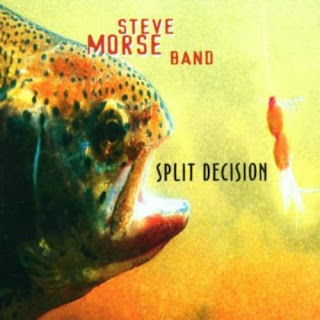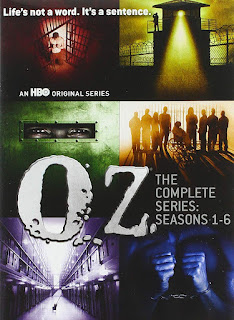V2.25
When fans discuss their favorite “guitar heroes,” they’ll toss out names like Jimi, Eddie V, or Stevie Ray. Younger fans may turn to fledgling bluesmen like Kenny Wayne Shepherd or one of the current crop of nu-metal sodbusters, but inevitably any true fan of the art of the six-string has to consider the enormous skills of Steve Morse. Virtually unknown to mainstream audiences, guitar virtuoso Morse has earned six Grammy nominations and has been voted “Best Overall Guitarist” an incredible five times by the readers of Guitar Player magazine. In a career that has spanned a quarter-century, Morse fronted the influential fusion band Dixie Dregs and spent two years during the 1980s with resurrected arena rockers Kansas. Most recently, Morse has lent his considerable talents to rock legends Deep Purple, filling the shoes once worn by Ritchie Blackmore and Tommy Bolin.
It is Morse’s solo work, however, that has earned him a reputation as one of the most underrated axemen in rock music. Since his 1984 debut album, Morse has continued to dazzle listeners and defy expectations with his constantly evolving talent. With Split Decision, Morse’s ninth solo album and his second for indie label Magna Carta, Morse continues on an upward career trajectory. Taking its title from the split personality of the album’s instrumentals, Split Decision is part hard-crunching rock ‘n’ roll and part jazz-rock fusion. It’s a delightfully eclectic mix of styles, Morse cranking out lightning-quick fretboard runs and power riffs on songs like “Mechanical Frenzy,” building on top of bassist Dave LaRue and drummer Van Romaine’s mighty rhythms. Less grandiose songs such as “Clear Memories” illustrate Morse’s ability in mixing jazz, rock, and classical guitar styles into one breathtaking song. The one thread that runs through all of the material is Morse’s easily identifiable sound – no other guitarist brings such clarity, tone and individual style to their playing as Steve Morse. If you want to hear a master musician at the top of their game, I’d recommend you give Steve Morse’s Split Decision a listen.
Originally conceived as a side project for Johnny Bonnel and Darius Koski of punk favorites the Swingin’ Utters, Filthy Thieving Bastards has taken on a life of its own with the addition of former Camper Van Beethoven guitarist Greg Lisher. With the release of A Melody of Retreads and Broken Quills (BYO Records), these rock ‘n’ roll veterans have created an unique mix of punk energy, country twang and traditional Celtic roots that is equally at home in either the alt-country or Irish-punk genres. Bonnel displays an impressive talent as a wordsmith, his clever, intelligent lyrics pairing the wit of Elvis Costello with the dark humor of Shane MacGowan. The band often comes across like a modern version of MacGowan’s infamous Pogues, matching Bonnel’s weary vocals with lilting Celtic-flavored instrumentation. The result is wonderfully complex songs like the philosophical “Death Is Not the End” or the lively “Bitter Old Son.” Although the Swingin’ Utters remain one of this scribe’s favorite punk rock outfits, it may be that Bonnel, Koski, et al have outgrown the genre’s limitations, freeing them to make magnificent new sounds with Filthy Thieving Bastards.
I would liked to have been a fly on the wall at the various television networks when Tom Fontana proposed his idea for the prison drama that became OZ. “Drugs, rape, murder?” I can hear the suits asking in disbelief, ‘cause in truth the average episode of OZ is filled with more violence, chaos and cruelty than the normal TV viewer will witness in their lifetime. It’s the gritty realism and disconcerting storylines set in the fictional Oswald Maximum Security Prison, however, that make OZ one of the best shows that the medium of television has ever produced. The brainchild of former Homicide: Life In the Streets scribe/producer Fontana and award-winning director Barry Levinson (Diner, Rain Man), the 3-DVD set OZ: The Complete First Season (HBO Home Video), sends viewers down the rabbit-hole into a terrifying wonderland.
An operatic tale of tragedy with little redemption, OZ is the story of the experimental “Emerald City” unit of Oswald, a “prison within a prison” that focuses on rehabilitation and is overseen by idealistic administrator Tim McManus (Terry Kinney). It’s not long into the eight-episode first season that McManus sees his ideals shot down as “M City” inmates, divided along racial and ethnic lines, engage in the same brutal behavior as seen in traditional prisons. Fontana’s writing is horribly realistic, but it’s the actors who bring OZ to life. The ensemble cast features recurring characters Warden Leo Glynn (Ernie Hudson), McManus, Sister Pete (Rita Moreno) and Governor James Devlin (Zeliko Ivanek). Inmates come and go (sometimes in body bags) throughout the story, but the first season features excellent performances by Dean Winters as the manipulative Ryan O’Reily, J.K. Simmons as racist Vern Schillinger and Eamonn Walker as the charismatic Muslim leader Kareem Said.
Although its storylines involve many inmates, the first season of OZ focuses on prisoner Tobias Beecher (played with incredible dexterity by Lee Tergesen). A middle-class lawyer convicted of vehicular homicide, Beecher is literally thrown to the wolves in a hell that even Dante couldn’t have imagined. Preyed upon by the sadistic Schillinger, addicted to drugs and tormented by guilt, the mild-manner Beecher becomes as violent and unpredictable as the other inmates in OZ. It’s an eerie evolution, well-written and well-acted by Tergesen. Since your humble columnist doesn’t have cable TV, I’ll have to wait until the second season of OZ is available on DVD to see how the prison riot that ends episode eight (originally aired in 1997) turns out. (View From The Hill, April 2023)



No comments:
Post a Comment